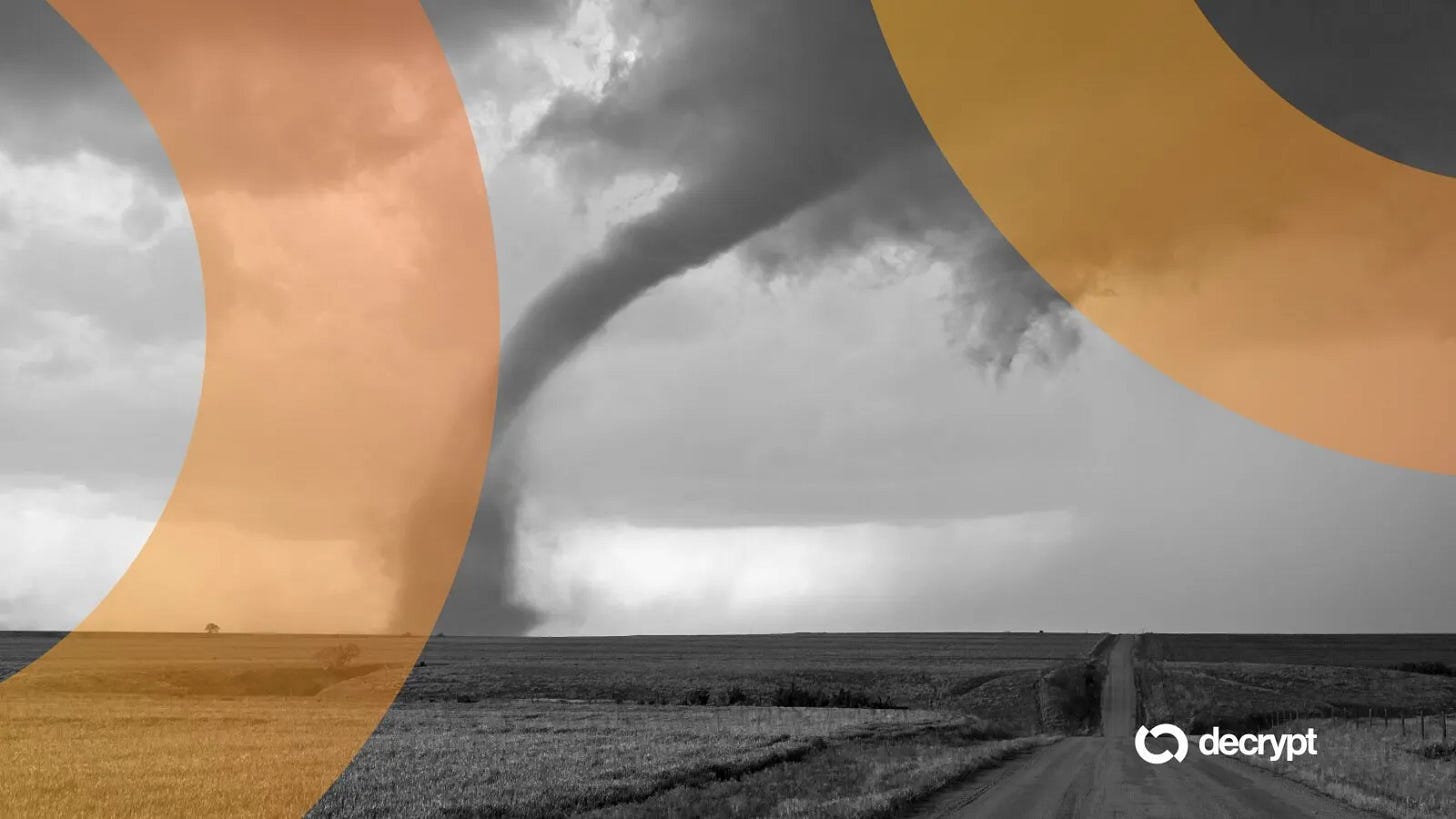Another month is turning. Summer is peaking, the heat is oppressive, and if you're in the Great Lakes States like I am, you can already feel the slow crawl toward fall. But crypto doesn’t slow down, and neither do we. Here’s your Daily Crypto News for July 31, 2025.
🌍 Bolivia Looks to El Salvador for Crypto Guidance as Locals Turn to Digital Currencies
⚖️ Tornado Cash Dev Trial Nears End as Closing Arguments Wrap
🏦 Coinbase and JPMorgan Partnership Seen as ‘Huge Adoption Unlock’ for Crypto
💷 Coinbase Targets 20M Struggling Brits in UK Expansion Plan
🧠 Bitcoin and Ethereum Aren’t Ready for Quantum Computers, Researcher Warns
📊 Crypto Treasury Firms Now Hold $100B+ in ETH Treasuries
🚫 Algeria Bans All Crypto Activities Including Ownership and Mining
📉 Trader Cobb & Market Training via The Grow Me Co
Bolivia Teams Up with El Salvador to Build Crypto Infrastructure
"This is honestly a big win for the United States as much as it is a win for Bolivia."
Bolivia has officially partnered with El Salvador to build out its national crypto infrastructure and regulatory framework. Just a year after lifting a long-standing ban on crypto, the country is turning to El Salvador for guidance, leveraging the Bitcoin pioneer's experience to design new policies and adopt blockchain tools.
This comes as Bolivia faces a brutal economic crisis. Their foreign reserves have collapsed—from $12.7 billion in 2014 to just $165 million this April. The Boliviano is weakening fast, and citizens are increasingly turning to U.S. dollars and dollar-backed stablecoins like USDT for stability. Since lifting the ban in mid-2024, crypto transactions have surged to $294 million—more than six times what they were a year ago.
In cities across Bolivia, people are now transacting in USDT daily, with Tether’s CEO calling the shift “quietly revolutionary.” Adoption is rising not from government mandates but from necessity and community demand. That’s what makes this different.
Tornado Cash Trial Wraps with a Big Question: Is Privacy Criminal?
"This just comes down to privacy. Do you protect privacy or not?"
Closing arguments have wrapped in the Roman Storm trial over Tornado Cash. Prosecutors allege the project was built not to protect privacy—but to profit from laundering stolen funds. Storm faces over 40 years in prison on conspiracy charges.
But here’s the core issue: Tornado Cash was built to preserve privacy. If bad actors used it, does that negate its original purpose? Privacy isn’t just for criminals. It’s for journalists, businesses, developers, activists—and anyone who doesn’t want their financial data out in the open.
Whether prosecutors can prove intent might matter legally. But morally? This case is about whether we still believe in financial privacy in a digital world.
Coinbase Partners with JP Morgan, Targets UK Financial Inequality
"Jamie Dimon’s Chase has been calling crypto a Ponzi for years—now they’re in bed with Coinbase."
Starting in 2026, JP Morgan Chase customers will be able to connect their accounts to Coinbase, cash out rewards points into USDC, and use Chase credit cards to fund their crypto portfolios.
This is a big deal. It signals a shift from the cautious distancing most banks took on crypto. Analysts are calling it a “huge adoption unlock.” Coinbase is now plugged into a traditional finance giant—after years of being mocked by it.
Meanwhile, Coinbase launched a cheeky new ad in the UK. Set to a musical jingle, it sarcastically reassures viewers that “everything is fine” while showing images of poverty, food insecurity, and rising debt. Nearly half of UK adults are now considered financially vulnerable. The ad is blunt, but the message hits: traditional finance is broken, and crypto might be the answer.
Bitcoin and Ethereum Aren’t Ready for Quantum Attacks
"We’ll all say this is 10 years away—until it’s tomorrow and we’re screwed."
Quantum computing could eventually break the cryptographic foundations of Bitcoin and Ethereum, according to a new report from Mistin Labs. Their argument: these networks use outdated signature schemes (ECDSA), unlike newer protocols like Solana and Sui that use quantum-resistant EDDSA.
Governments are already phasing out ECDSA, and crypto needs to follow. If not, millions of wallets could be exposed by a quantum leap. Bitcoin would need a hard fork to adopt quantum resistance—a massive and contentious upgrade.
This is one of those problems that feels far away—until suddenly it isn’t.
Corporate Crypto Treasuries Cross $100 Billion
"The L of the day goes to Algeria for banning crypto altogether."
Galaxy Research reports that firms like Strategy, MetaPlanet, and SharpLink now hold over $100 billion in digital assets. These aren't just speculative buys—these are companies putting crypto on their balance sheets as long-term bets.
Meanwhile, Algeria is moving in the opposite direction. The country just expanded its 2018 crypto ban, criminalizing ownership, mining, and all transactions. Violators face prison time and steep fines. It's a step backward in a world moving fast toward digital assets.
Listener Questions
Phil asks about Ohio’s gerrymandering battle:
He wanted an update on the chaotic redistricting fight between Ohio Republicans, Democrats, and the courts—and asked if I’d run in the 17th district (which doesn’t exist!).
Here’s the deal: Ohio has 15 congressional districts. Republicans hold 10 of them. The state legislature, governor’s office, and Supreme Court are all Republican-controlled. Right now, they’re redrawing maps again, and I expect we’ll see a 13–2 Republican tilt—maybe 12–3.
But depending on how those districts shift, you might see new battlegrounds open up. A district like Ohio’s 7th, where I ran, could get more competitive. We’ll know more after November 30th when the next maps are (supposedly) finalized.
AVMav1, a new listener, asks about crypto sovereignty:
He raised concerns about how government pressure could undermine crypto’s promise—comparing it to the 1933 gold seizure. What happens if governments demand transaction data or start tracking cold wallets?
I get it. But I don’t think we’ll see a gold-style seizure in the U.S.—not politically feasible. Still, if you’re not proactive, you’ll lose the privacy battle. Most people won’t take action. They won’t protest, organize, or even show up to local meetings. They’ll just post a meme and call it activism.
That’s not how we protect freedom. This is a political issue as much as it is a technical one. And if we don’t wake up soon, we’ll get steamrolled.
Crypto Prices (as of 10:04 AM ET)
Bitcoin: $118,500
Market Cap: $2.35 trillion
Ethereum: $3,807
Market Cap: $459.1 billion
XRP: $3.11
BNB: $7.97
Solana: $181 (flat)
Dogecoin: $0.218
Tron: $0.328
Cardano: $0.767
Total Market Cap: $3.88 trillion
Happy HODLing, Everyone.


















